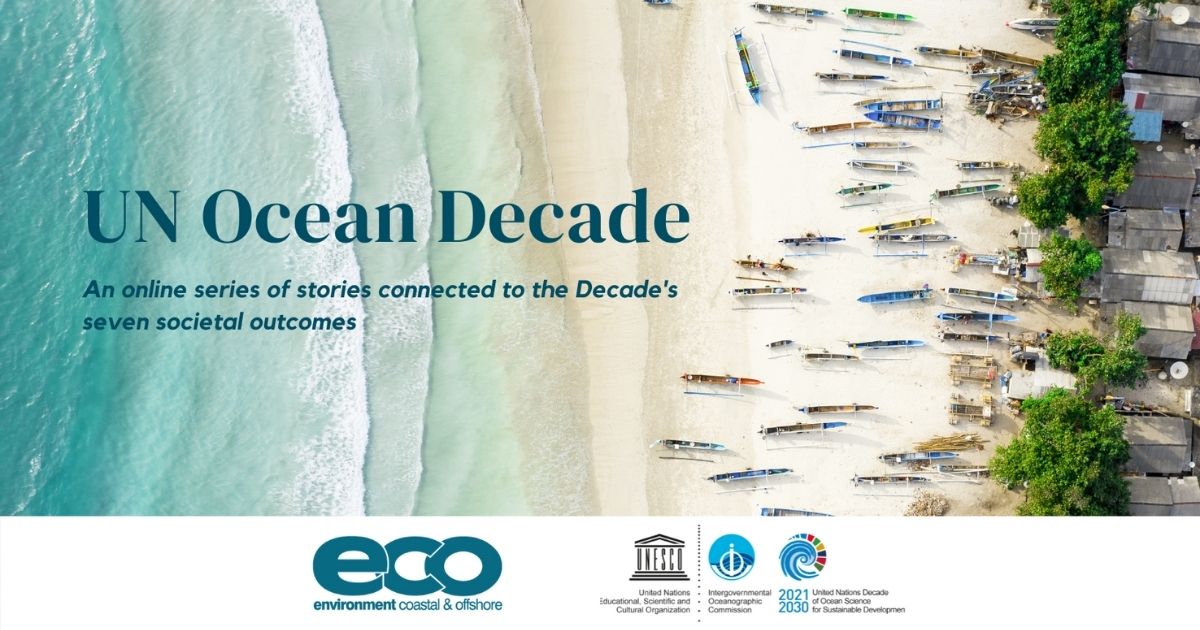By Christine Gaebel, Kate Larkin, Tina Dohna, Lea-Anne Henry, Tom Grove, Alyssa Stoller, Xiaoyu Fang, J. Murray Roberts
iAtlantic and Diverse Knowledge Systems
The Ocean Decade is an urgent call to action to enable an ‘accessible and inclusive ocean’ for all stakeholder groups globally. Recognising that all stakeholders have a stewardship role in ensuring the long-term sustainability of the global ocean, open sharing of data and information and co-design of ocean knowledge are critical. For the deep and open ocean, this is no small task. These ecosystems host rich and unique biodiversity, yet their remoteness makes them particularly arduous to access, and our knowledge is limited compared to shallower and coastal ecosystems. Indeed, undertaking offshore research is expensive, time consuming, and requires advanced technical capacity. Thus, how can we utilise the Ocean Decade to help make these traditionally non-accessible ecosystems accessible to all stakeholders?
The Horizon 2020 iAtlantic Project is an international, multi-disciplinary research project, which seeks to assess the health of deep-sea and open-ocean ecosystems across the entire Atlantic Ocean (see ECO Magazine’s Deep Sea 2020 edition). In addition to an ambitious scientific field programme to produce new data, iAtlantic is committed to exploring new ways to tap into non-traditional sources of data and knowledge, such as data collected from offshore industries, civil society, and local communities.
To focus iAtlantic’s work with data and knowledge beyond classic scientific data, a Diverse Knowledge Systems (DKS) Working Group was created. Such data can increase the resolution and coverage of data points, cross-validate scientific research, add further parameters, and extend scientific time-series with historical records, offering insights into past ecosystem functioning and behaviour in order to understand current and future trends. By extending the breadth of marine data and information sources, the knowledge created from these data can be co-designed with the diverse data providers. This can lead to more inclusivity and accessibility to knowledge, which helps foster a sense of co-ownership for the resulting marine management.
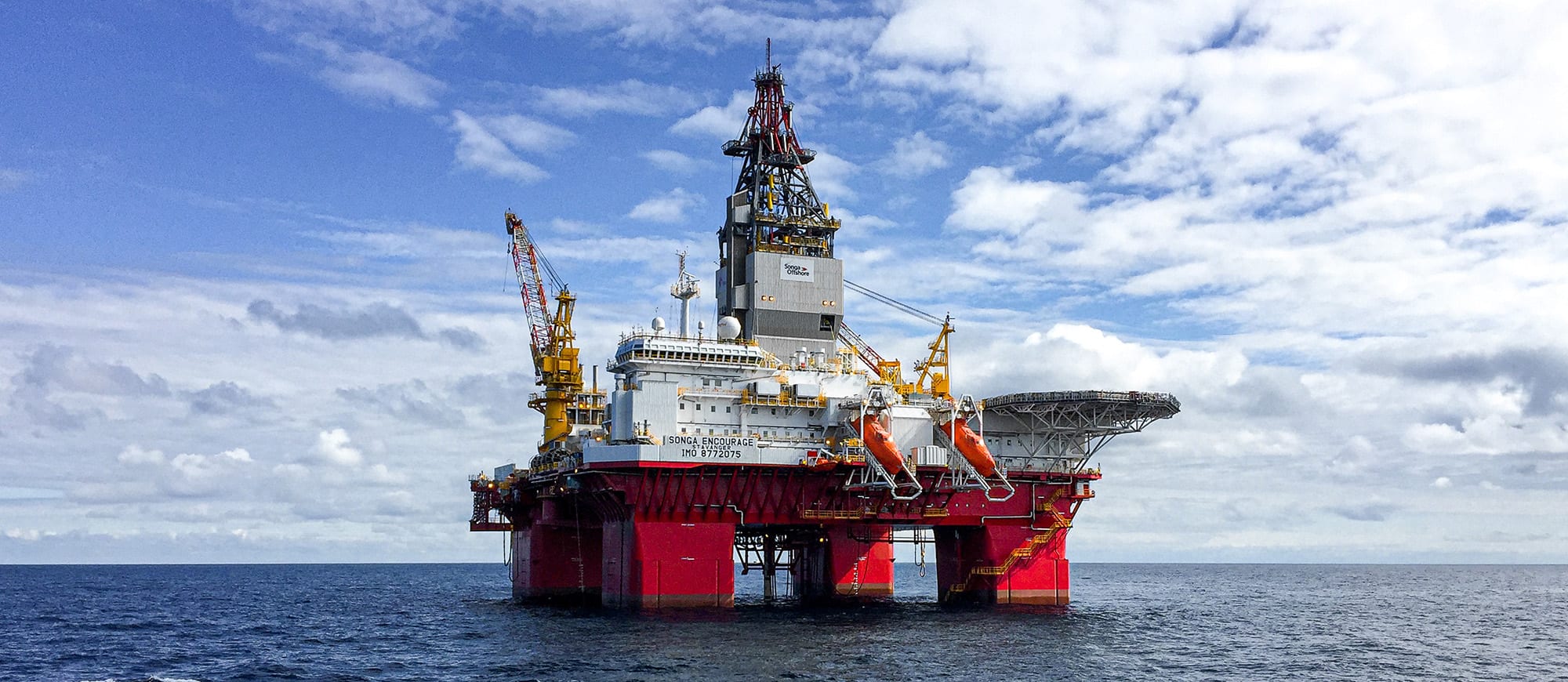 iAtlantic works closely with offshore industry, such as the oil and gas sector, in order to widen participation in ocean knowledge formation, increase the quantity of existing offshore data, and make deep and open Atlantic ecosystems more accessible. (Photo credit: Jan-Rune Smenes Reite)
iAtlantic works closely with offshore industry, such as the oil and gas sector, in order to widen participation in ocean knowledge formation, increase the quantity of existing offshore data, and make deep and open Atlantic ecosystems more accessible. (Photo credit: Jan-Rune Smenes Reite)
Widening Knowledge through Industry Partnerships
In its endeavour to make the deep and open ocean more accessible and to widen the knowledge base for all, iAtlantic is working with diverse datasets collected from non-conventional sources. For example, iAtlantic has fostered positive relationships with offshore industry sectors, such as the oil and gas industry (Figure 1). These partnerships are crucial for ensuring ocean inclusivity and closely align with the fundamental objectives of the Ocean Decade.
Offshore industries such as fisheries, oil and gas, and the telecommunications sector operate a vast number of platforms and vessels globally and can play a crucial role in cost-effective data collection. However, industry data is often hampered by commercial sensitivities and lack of common standards, making these challenging to obtain. Through long-standing joint initiatives and by cultivating trusting and mutually beneficial cooperation, the spatial and temporal scope of ecosystem assessments in the deep and open ocean can be significantly upscaled.
These partnerships open the dialogue for potential data sharing through public data services, including PANGAEA and European Marine Observation and Data Network (EMODnet). A successful example of these efforts is iAtlantic’s cooperation with Petrobras Brazil, a multinational corporation in the petroleum industry, who has released relevant data from their industrial monitoring and exploration activities to project researchers. These partnerships help enable offshore industries to act as recognised contributors to sustainable development and ocean stewardship. This widens their participation in ocean science knowledge production, thereby increasing the availability of data, information, and knowledge of the deep and open ocean for all stakeholders.
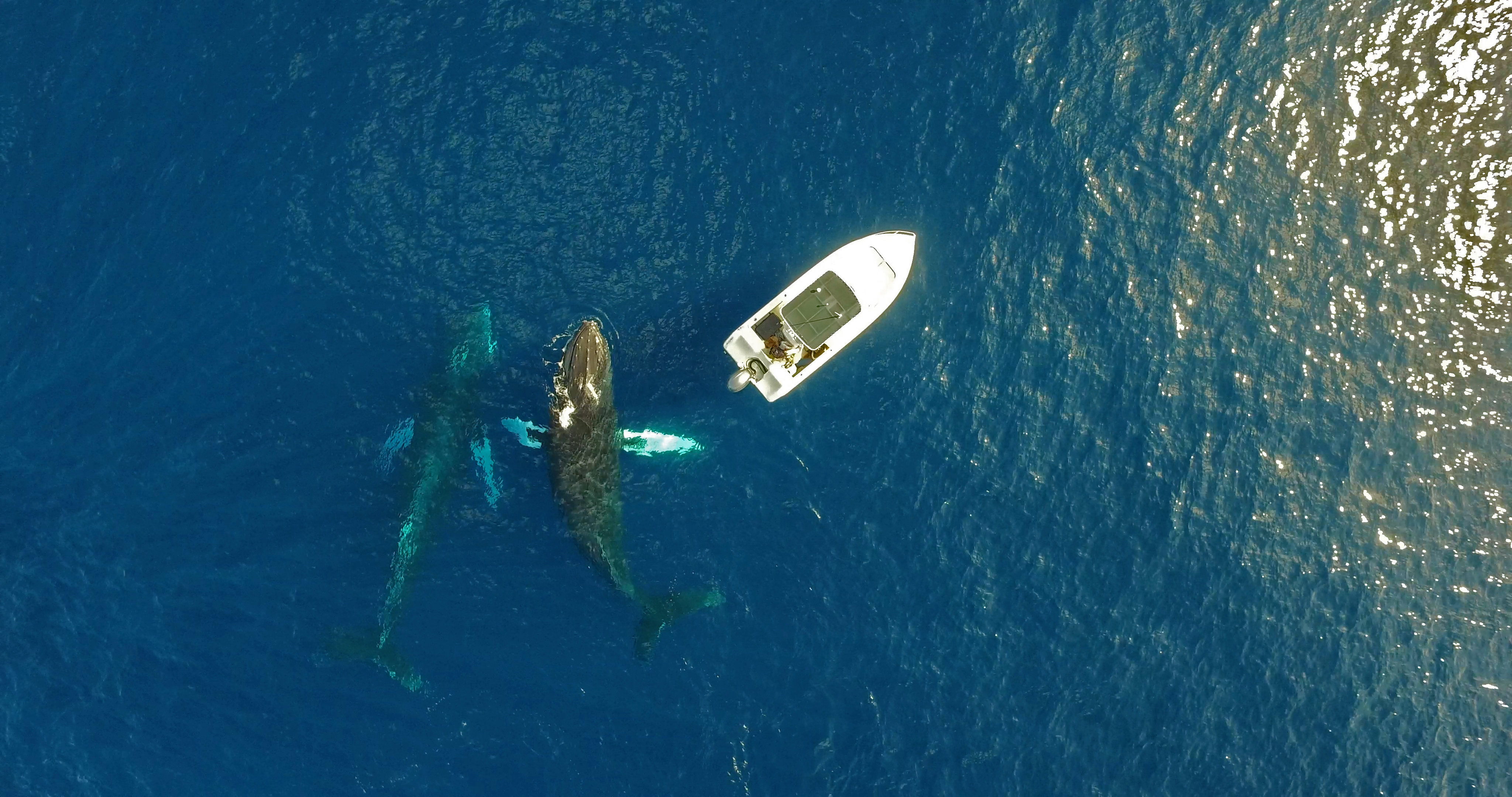 Drone image of local researcher Andrew Stevenson of Whales Bermuda conducting his boat-based surveys of humpback whales at their stopover grounds off Bermuda. (Photo credit: Andrew Stevenson, Whales Bermuda)
Drone image of local researcher Andrew Stevenson of Whales Bermuda conducting his boat-based surveys of humpback whales at their stopover grounds off Bermuda. (Photo credit: Andrew Stevenson, Whales Bermuda)
Bringing in Local Ecological Knowledge
The DKS Working Group is developing two case studies to demonstrate the integration of local ecological knowledge. The first takes place in the Sargasso Sea and involves a collaboration with the independent research organisation Whales Bermuda, which is a citizen scientist initiative that has been gathering data on humpback whale sightings around Bermuda since 2007. These data offer a long-term, photographic timeseries of humpback whale occurrence at this migratory stopover (Figure 2). Unique markings on the whales’ tail flukes enable capture-recapture modelling of annual humpback abundance, which can be related to long-term oceanographic changes and compared to other North Atlantic population trends.
The second case study is set in Iceland and involves citizen science surveys with those employed in local pelagic and demersal fisheries and the marine wildlife tourism sector, to gather knowledge on long-term ecosystem variability, such as changes in fish stocks, whales, and climate change off Iceland (Figure 3). These observations are helping iAtlantic access a body of knowledge for regions where there are no other sources of long-term data, and provide opportunities for novel comparisons with standardised surveys.
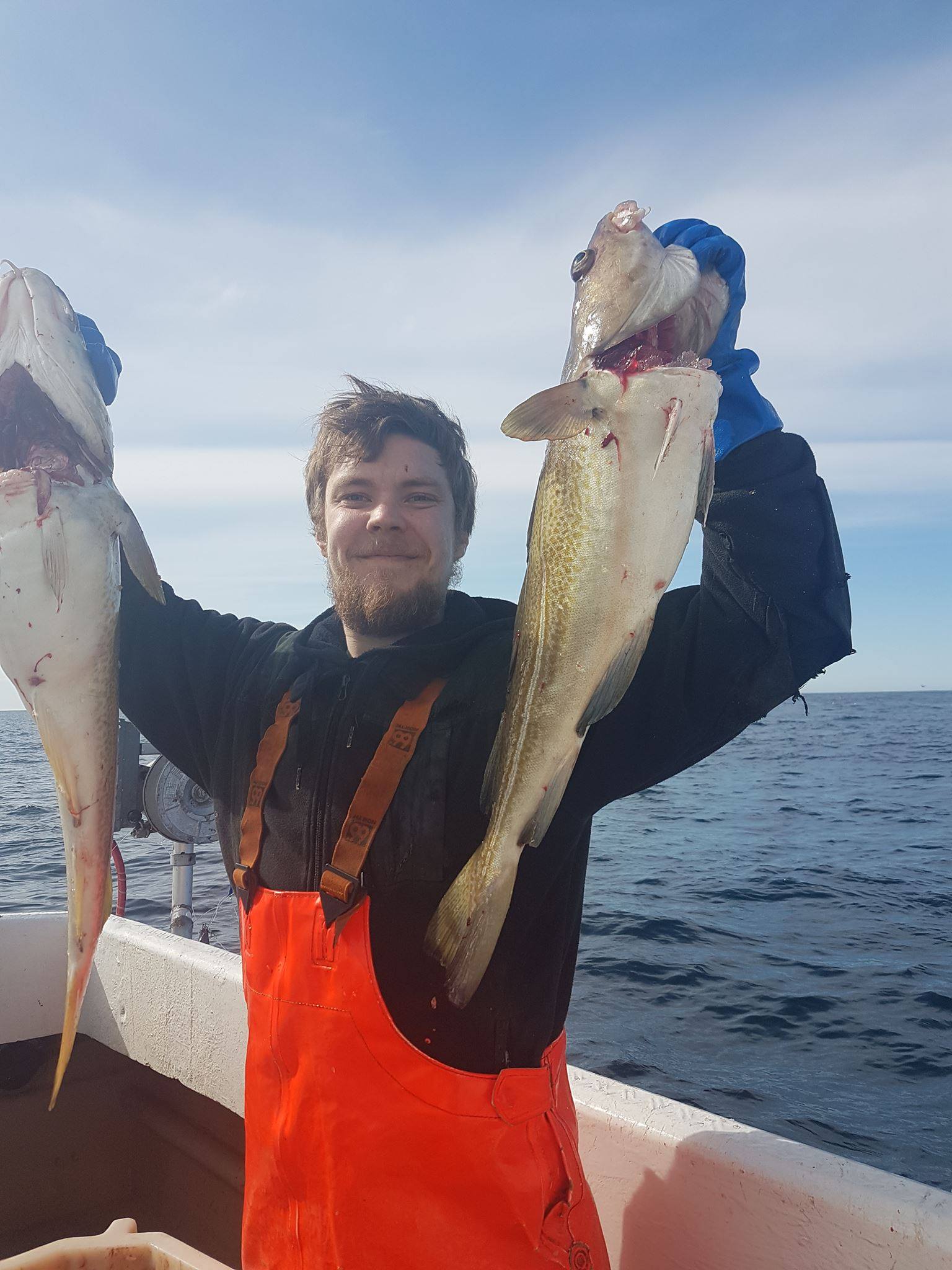 Icelandic fishermen Eyjólfur Fannar Scheving Jónsson shared his local ecological knowledge with iAtlantic to help us better understand long-term ecosystem changes in the deep and open ocean where he makes his living. (Photo credit: Eyjólfur Fannar Scheving Jónsson)
Icelandic fishermen Eyjólfur Fannar Scheving Jónsson shared his local ecological knowledge with iAtlantic to help us better understand long-term ecosystem changes in the deep and open ocean where he makes his living. (Photo credit: Eyjólfur Fannar Scheving Jónsson)
Accessing Diverse Knowledge
Data are the foundation for a knowledge-driven society and data sharing is the first step to ensure equitable access to the information and knowledge needed to tackle the Ocean Decade Challenges. To this end, iAtlantic has set up an open-source customisable online platform, called the iAtlantic GeoNode (Figure 4). This allows for the shared visualisation of data as map layers, without necessarily giving full access to original data. This encourages collaboration, despite any scientific embargos and commercial sensitivities that may exist. A map speaks a thousand words and this makes the GeoNode a powerful tool to communicate open marine data and information to wider society. In addition, it offers the potential for more qualitative data (e.g. historical records and observations from local communities), to be presented in a visual way, together with other marine environmental measurements, to aid storytelling. Through these efforts, data – with their information-rich metadata – can be readily ingested into long-term marine data services such as EMODnet. In partnership with the Global Earth Observation System of Systems (GEOSS), iAtlantic is also driving forward a new Atlantic data community which will catalogue metadata, offering a searchable tool to discover and access data from across the Atlantic.
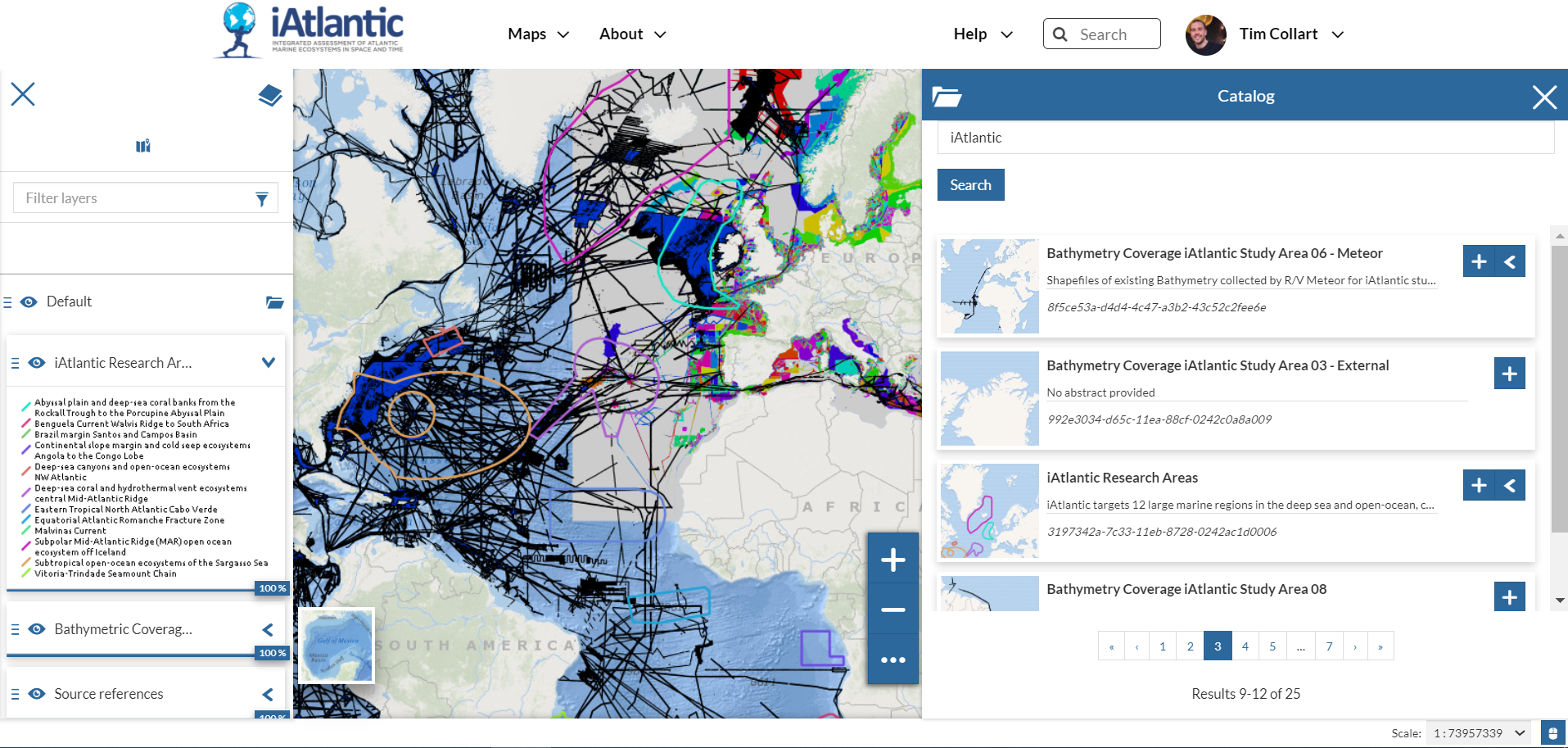
Conclusion
Promoting open data sharing and equitable access to diverse data, information, and knowledge is crucial to achieve a transparent and accessible ocean. iAtlantic works with partners across the North and South Atlantic, and actively welcomes wider partnerships with all marine and maritime actors. Visit our website and contact the This email address is being protected from spambots. You need JavaScript enabled to view it. to discuss opportunities for data sharing, co-design of knowledge, and more.
References
1. Murray F, Needham K, Gormley K, Rouse S, Coolen JWP, Billet D, Dannheim D, Birchenough SNR, Hyder K, Heard R, Ferris JS, Holstein JM, Henry L-A, McMeel O, Calewaert J-B, Roberts JM (2018) Data challenges and opportunities for environmental management of North Sea oil and gas decommissioning in an era of blue growth. Marine Policy 97: 130-138.
Acknowledgements
This Project received funding from the European Union’s Horizon 2020 Research and Innovation Programme under grant agreement no. 818123 (iAtlantic). This output reflects only the authors’ view and the European Union cannot be held responsible for any use that may be made of the information contained therein.
This article is part of an online series dedicated to the UN Ocean Decade. One story will be published each week that is related to initiatives, new knowledge, partnerships, or innovative solutions that are relevant to the following seven Ocean Decade outcomes. Access the special digital issue dedicated to the Ocean Decade here.


